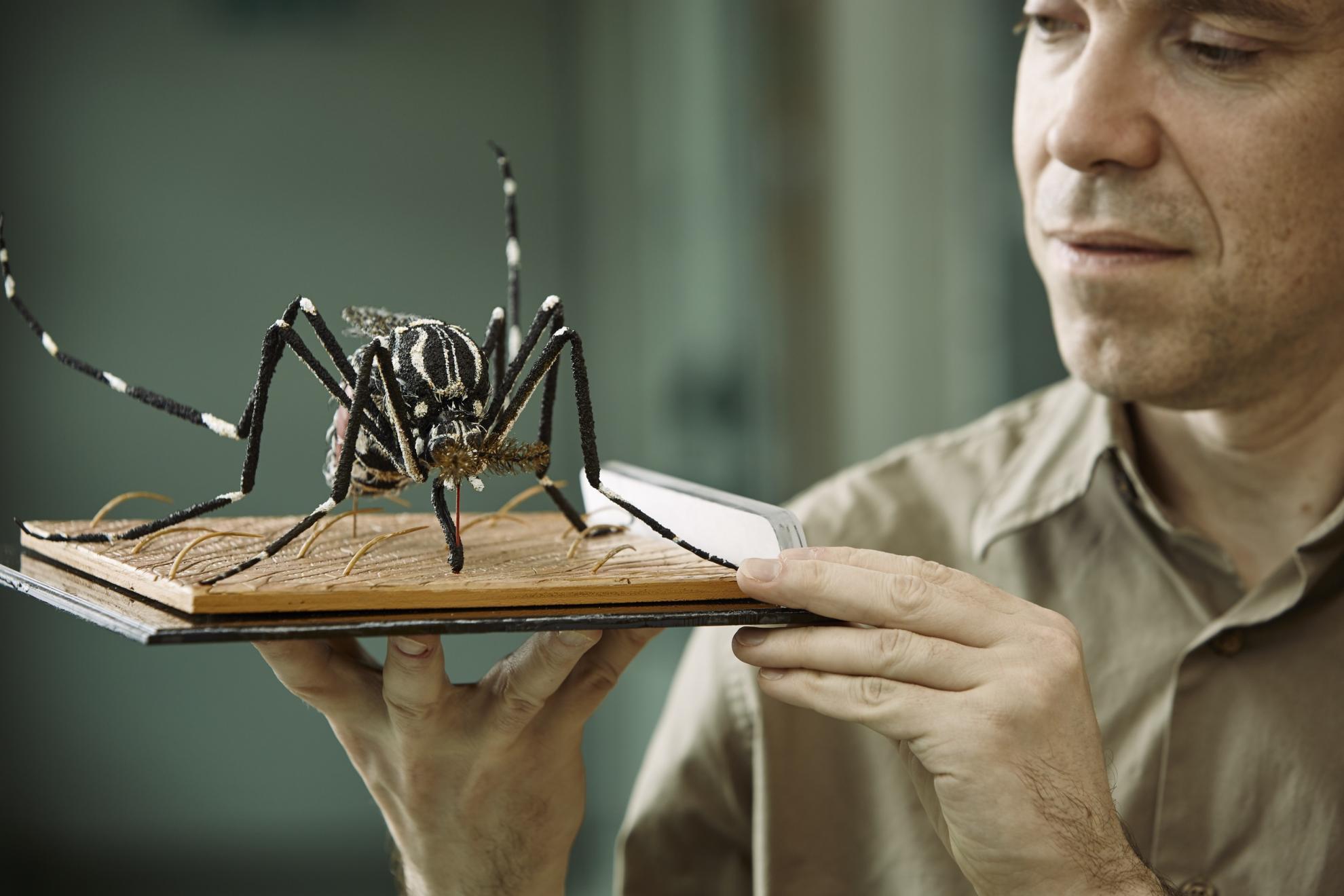The Pirbright Institute’s Professor Luke Alphey has been shortlisted for the prestigious European Inventor Award 2015 for his work on using genetically-modified mosquitoes to control dengue fever.
Luke is one of 15 international finalists shortlisted for this year’s award. Each of the five award categories (Industry, Small-to-medium sized Enterprises, Research, Non-European Countries and Lifetime Achievement) have three finalists who also have a chance of winning the Popular Prize, which is voted for by the general public.
Luke’s ground-breaking research has led him to be a finalist in the Research award category. His research is centred on using genetically modified insects as an environmentally friendly way of controlling pest populations, thereby reducing the damaging effects they can have on both animal and human health as well as on agriculture.
To use the insect as a method of control, an extra gene is programmed into the mosquitoes DNA to ensure the resulting mosquito larvae never reach reproductive maturity. The technique of sterilising male Aedes aegypti mosquitoes means when released, the modified mosquitoes breed offspring that do not survive to adulthood and the invasive mosquito population is reduced, leading to fewer biting mosquitoes and lower risk of disease transmission.
The European Inventor Award is organised by the European Patent Office (EPO) and was launched in 2006. The Award pays tribute to the creativity of inventors the world over, who use their skills and knowledge to make a difference to people's daily lives.
The 2015 awards mark their 10th anniversary and will be held on 11 June at the Palais Brongniart (La Bourse) in Paris, France.
Luke says: “I'm delighted to have been shortlisted for this prestigious award. Genetic pest management holds out the prospect of controlling some of the world’s most intractable pests, including the mosquitoes that transmit major human diseases, as well as pests that attack crops and livestock. The potential social and economic impact is therefore huge, and I am excited to be involved in the development of this approach in moving it from lab to field”.
To find out more about Luke’s research, the Award and to vote for him in the Popular Prize category, see the EPO website. Votes can be made every day until 4 June.
Smart TV users can watch the gala on 11 June 2015 live on Innovation TV.
